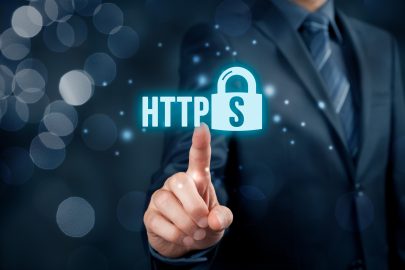The internet is the wild west of cyber-crime. If your website is unprotected it can fall victim to a number of attacks. And, your customers’ personal information can become compromised. But, what security certificate is right for your website?
Check out more guides about the security of your website click HERE.
This is an easy-to-read, no-nonsense guide on which security certificate you need for your site.
What Security Certificate is Right for Your Website?

Every website you visit carries the potential of letting malware into your system. For that reason, the only websites that show up on search engines are those with a security certificate. This protects both your websites and customers’ account details. And, your users know that their information is secured between themselves and you – the service provider.
Any website that requires a login username and password, for admins or users, requires an SSL certificate.
For WordPress users, a solid website security strategy begins with a WordPress theme that is built for SSL integration. If you’re working with a pre-built site, use a WordPress plugin to make it compatible with an SSL security certificate.
SSL & HTTPS
An SSL certificate is the best security method for securing your customers’ data, passwords, and sensitive information used on your site. An SSL certificate assures your site visitors of the safety of your website.
Check out: 17+ Best Horizontal WordPress Themes For Photographers and Artists
Your website is your business, and every business is vulnerable to theft. That is if you make your business an easy target. The way to tell whether a website is safe to visit is to look for the HTTPS indication.
HyperText Transfer Protocol Secure (HTTPS) is the green thing to the left of the domain name in your browser’s URL bar. It shows visitors that the website is guarded with Secure Socket Layer (SSL) and Transport Layer Security (TLS).
TLS is specific to the identification information files attached to an SSL certificate. Imagine it as a lockbox sitting inside a larger safe. SSL is a large safe.
What’s an SSL Certificate?
SSL establishes a secure link between your host server and a visitor’s browser. The standard protocol encrypts all communications and data sent between your website’s origin server and a data request.
When a site is SSL secured, the URL bar in your browser shows a green padlock on the left-hand side of the bar. No third party can intercept data in the process of sending and receiving. SSL ensures that payment information, account details, and personal data remain encrypted to everyone else.
Before you can create an SSL connection on your website, you need to get an SSL certificate. The certificates are issued by a central authority, called the Certificate Authority. A very creative name…
Getting an SSL Certificate
To get an SSL certificate, register all of your website’s identity information, along with any company details with the Certificate Authority. If a website with an SSL certificate engages in illegal or reprehensible business practice, its information is registered and accessible.
Once your SSL certificate is approved, you get two numeric passwords, or keys: a private one, and a public one.
After you have established an SSL connection with your domain, your SSL registration information is retrieved each time the website is requested. If your SSL certificate is out-of-date or otherwise invalid, the user gets alerted to the potential risk.
IP-based SSL enables your site to solely display an SSL certificate. You can display multiple certificates on your website with SNI-based SSL. Learn more about the difference between SNI-based SSL and IP-based SSL to decide which is right for your website.
Free vs Paid SSL Certificates
Like most things, you will get the best quality product if you invest in it. Free SSL certificates don’t offer the same level of security as paid certificates.
There are two levels of paid certificates. Organization validation is the most common type. Extended Validation (EV) is only used by larger organizations, like Google and the United States Government.
Both paid options ensure that your website can only be accessed from its original, valid source. Free SSL certificates only use domain validation(DV).
Domain validation is not nearly as extensive as organization validation or EV. DV does not ensure that the website being accessed is truly valid. Instead, it simply ensures that the content being transmitted is securely encrypted. But, the site’s identity does not correspond with a specific owner.
Check out: The Complete Android Developer Course Review
Wildcards vs Non-Wildcard
Non-wildcard SSL certificates only allow one domain to be registered. Wildcard SSL certificates are convenient because they allow for a variable URL with a common extension. For example, in wildcard.domain.com, “wildcard” can be changed to anything.
Check out: To Build or Not to Build: Should I Build My Own Website, or Hire Someone?
But, wildcards can have minor security downsides. Someone can redirect users to dangerous, or garbage websites, like garbage.domain.com. Once the domain has been redirected to a malicious website, a hacker can steal your certificate and use it to mask garbage.domain.com as a legitimate site.
A normal, non-wildcard SSL certificate has a preprogrammed list of acceptable domains. In a similar situation, the certificate would fail and send a warning message to the user’s browser.
Conclusion
An SSL certificate works to encrypt the data sent to and from users. It also validates the identity and legitimacy of your website to a user’s browser. If you want to use a website for business purposes, an SSL security certificate is essential.
The current laws regarding internet and data security are limited. That is why you have to make sure that you have the proper security certificate for your website. It is the only way to protect your business and customers from cyber intrusion, malware, and identity theft.
For more help setting up your website, stop by and check out our templates. We have all sorts of resources to help you design and set your website up properly.
Check out more content like this click HERE.


